
Sean Ross
gamer level 2
686 xp
686 xp
followers
17
17
Use my invite URL to register (this will give me kudos)
https://boardgaming.com/register/?invited_by=seandavidross
profile badges
...
...
...
...
recent achievements

Supporter
Give 10 hearts (loyalty points) to a single game
Give 10 hearts (loyalty points) to a single game

Check Out My Favorites
Add 5 games to your Favorites list.
Add 5 games to your Favorites list.

Amateur Grader
Grade 10 more reviews or tips by clicking "Yes" or "No" in response to the question "Was this helpful?"
Grade 10 more reviews or tips by clicking "Yes" or "No" in response to the question "Was this helpful?"

Gave My First Grade
Grade a gamer's review or tip by clicking "Yes" or "No" in response to the question "Was this helpful?"
Grade a gamer's review or tip by clicking "Yes" or "No" in response to the question "Was this helpful?"
Player Stats
Critic (lvl 2)
455 xp
455 xp
Explorer (lvl 0)
50 xp
50 xp
Professor (lvl 0)
30 xp
30 xp
Reporter (lvl 0)
0 xp
0 xp
About Me
I'm a game designer. I've designed a climbing game for 2-3 players called 'Haggis' that was published in 2010 by Indie Boards and Cards. I'm working on some others. I'm a member of the Game Artisans of Canada.
I'm still trying to understand my own likes and dislikes. From what I can tell, I like games that are tense, create agonizing decisions, tend to have drama in either story or scoring (wild, "swingy", backs-and-forths and crazy comebacks like in Poker, Tichu, Watten, and Euchre), risk-taking elements, hand management, deduction, trading, teamwork or cooperation, and (occasionally) negotiation. I dislike games that lack meaningful decisions or tension, where there's not enough control over your own fate, where you can get screwed early and have no option but to wait for the game to run its course, where the overhead to fun ratio (be it through bits or rules or graphic design choices) is too high. I'm not a huge fan of take-that mechanics, word games, or party games, though there are exceptions.



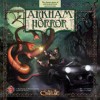






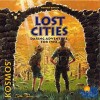

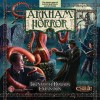
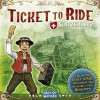


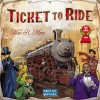
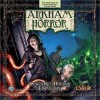


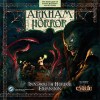






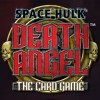
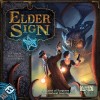


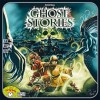
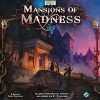
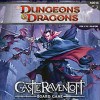


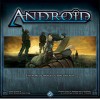


Ticket to Ride
As a newcomer to the hobby, surrounded primarily by non-gamers, I began to grow a collection with the aim of progressing toward the somewhat heavier games that seemed to appeal to me. To that end, I charted a course that started off with lighter weight games. The intention being that I would get other people to play these games with me, then perhaps have them come along for the ride into the more complex games.
For me, Ticket to Ride has already worked remarkably well as a gateway. I opened it on Christmas Eve and played a game with my brother and his wife – neither of whom particularly enjoy games. It went down very well. Three days later, with two additional players, we played Bohnanza followed by TtR. The new players asked where they could get both games. The next day, with 4 different players, I introduced TtR again, with the same result – everyone enjoyed it, and each couple asked where they could get a copy. The day after that my brother (who didn’t care for games) asked to borrow TtR to play with some guests. He’s also asked where he can get his own copy. I’d call that a good start.
Ticket to Ride is a good game. I don’t mind playing, and I have no problem suggesting it (in fact, I wish it supported more players). And – while I don’t find it particularly stimulating – I was surprised by the amount of tension it produced in the other players. For some reason, they all seemed to get deeply invested into the game. I wish I could say the same, but it still felt good seeing how much they liked it.